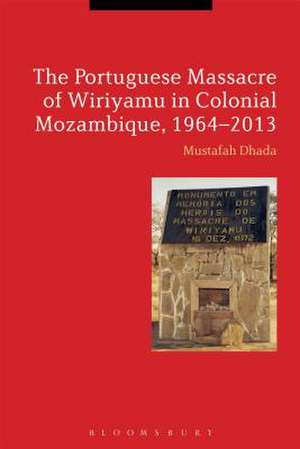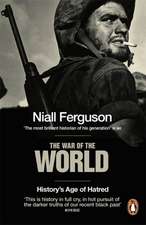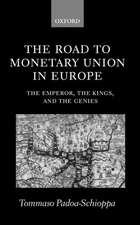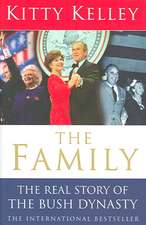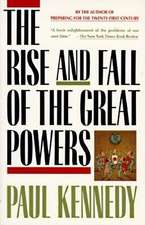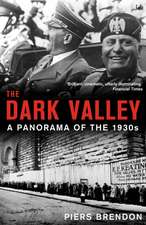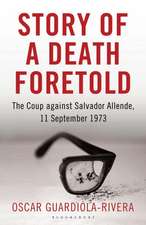The Portuguese Massacre of Wiriyamu in Colonial Mozambique, 1964-2013
Autor Professor Mustafah Dhadaen Limba Engleză Hardback – 18 noi 2015
| Toate formatele și edițiile | Preț | Express |
|---|---|---|
| Paperback (1) | 257.59 lei 6-8 săpt. | +92.98 lei 6-12 zile |
| Bloomsbury Publishing – 17 mai 2017 | 257.59 lei 6-8 săpt. | +92.98 lei 6-12 zile |
| Hardback (1) | 774.20 lei 6-8 săpt. | |
| Bloomsbury Publishing – 18 noi 2015 | 774.20 lei 6-8 săpt. |
Preț: 774.20 lei
Preț vechi: 990.69 lei
-22% Nou
Puncte Express: 1161
Preț estimativ în valută:
148.14€ • 155.11$ • 122.87£
148.14€ • 155.11$ • 122.87£
Carte tipărită la comandă
Livrare economică 10-24 aprilie
Preluare comenzi: 021 569.72.76
Specificații
ISBN-13: 9781472511980
ISBN-10: 1472511980
Pagini: 256
Dimensiuni: 156 x 234 x 16 mm
Greutate: 0.54 kg
Editura: Bloomsbury Publishing
Colecția Bloomsbury Academic
Locul publicării:London, United Kingdom
ISBN-10: 1472511980
Pagini: 256
Dimensiuni: 156 x 234 x 16 mm
Greutate: 0.54 kg
Editura: Bloomsbury Publishing
Colecția Bloomsbury Academic
Locul publicării:London, United Kingdom
Caracteristici
Uses a range of sources, including archival material, film, interviews and photographs
Notă biografică
Mustafah Dhada is Professor of History at California State University, Bakersfield, USA, and Research Associate at the Center for Social Studies, Coimbra University, Portugal. He is the author of Warriors at Work (1993).Peter Pringle is a foreign correspondent, investigative reporter and writer. He is the co-author of Those Are Real Bullets: Bloody Sunday, Derry, 1972 (2000).
Cuprins
ImagesMapsForeword by Peter PringleAcknowledgementsPreface1. Introduction2. Literature Review3. Oral Research4. The Nationalist Struggle and the Colonial War In Mozambique5. The Church In Tete6. The Church and Mass Violence7. The Wiriyamu Narrative: Genesis and Revelation8. Portuguese Reactions to The Public Narrative9. Wiriyamu Before The Massacre10. The Wiriyamu Massacre11. ConclusionTablesSelect BibliographyIndex
Recenzii
The result of a decade of scrupulous and original research, [this book] is a precious contribution to the history of Portuguese late colonialism . Dhada's work both expands and perfects historical knowledge and method. It serves as a powerful corrective to old and contemporary mystifications about the colonial modi operandi . Its content clearly exposes the previous flawed accounts, revealing their superficial, speculative, and second-rate research.
While he has assiduously made his way through a mass of archival and other written sources, the pre-eminent original contribution of this book is the material gathered from interviews with survivors of the killings and others who had been in and around Wiriyamu at the time. These include a perpetrator who, penitent in the decades after the event, provides testimony that strengthens the case for official culpability.
[This book] tells an amazingly detailed story ... It is an important account of a key event in Mozambican history.
This book is a feat of investigative research and layered storytelling. Dhada unearths with exceptional degree of detail the events surrounding the infamous Portuguese colonial massacre of Wiriyamu, as well as the ways in which competing narratives about this event were crafted, buried, revealed, diffused, and contested. The book leads the reader through a maze of documents and memories, until a shattering vision of the destruction of Wiriyamu in which even the trees come to life to testify. The writing is alive with personal passion spanning decades; rich, sophisticated, and utterly compelling.
The murdered inhabitants of Wiriyamu, casualties of brutal Portuguese refusal to relinquish imperial rule, now have the recognition they deserve. Mustafah Dhada's heroic work of historical reconstruction relocates these lost lives: documenting the names of the 385, he reminds us of the potential they represented. Dhada interweaves the narrative of the massacre with the fierce course of decolonization and subsequent debates on the legacy of Wiriyamu. Portugal's young officers, persuaded by Mozambicans, overthrew their generals and made Portugal a democracy; Mozambique gained independence but could not get free of Cold War or imperial struggles. In its interplay of revolutionaries, priests, villagers, soldiers, and journalists, this multilayered work shows how senseless exercise of power, accompanied by denial, remains with us.
By combining a Vanisa-inspired approach to oral history, with archival sources, media accounts and even works of fiction, Dhada achieves an impressive feat of layered storytelling ... The true strength of this book though, is its exploration of the interactions of a diverse set of actors, from local chiefs, Portuguese soldiers, members of the secret police, FRELIMO cadres, and Spanish priests that set the stage for the massacre ... [The book] will be of great interest to students of colonialism, liberation struggles, social history, and the history of religion in Africa and I strongly recommend it.
The jacket copy calls Wiriyamu Portugal's "most famous" colonial massacre, but "infamous" is more suitable. Casualty figures are appallingly precise: 385 named individuals dead; livestock slaughtered, houses and bodies burned; victims' memory desecrated by Portuguese denials. In 1972, the Wiriyamu area became a flashpoint due to rising FRELIMO infiltration and local chiefs' fraught attempts to chart a middle course between guerrillas and the colonial state. Though short, the book is thorough. Historian Dhada (California State Univ., Bakersfield) details the massacre and its antecedents, the official cover-up, and the saga of the story's emergence in UK media. Marnia Lazreg notes that empires that resort to torture-and terror-seek to redeem the irredeemable and inevitably fail (Torture and the Twilight of Empire, 2008). The consequences here were severe, shattering Portugal's credibility as anticommunist stalwart, provoking a 1974 coup by alienated army officers. Democratic resurgence ended four decades of fascism and five centuries of Portuguese colonialism. Revisiting such awful events must be harrowing for survivors, but assisted by a sensitive chronicler like Dhada, their full story is available at last. Lest we forget.
Mustafah Dhada's important and idiosyncratic book . [is an] essential document that provides extensive lists of sources, records of census results and of the recovered names of the victims, and a roster of the individuals who provided personal testimony about one of the worst atrocities of the liberation war in Mozambique.
The book is written in engaging and accessible prose . [A] valuable addition to the history of war and counterinsurgency in Mozambique . Dhada has written an indispensable account of the Mozambican war for independence.
While he has assiduously made his way through a mass of archival and other written sources, the pre-eminent original contribution of this book is the material gathered from interviews with survivors of the killings and others who had been in and around Wiriyamu at the time. These include a perpetrator who, penitent in the decades after the event, provides testimony that strengthens the case for official culpability.
[This book] tells an amazingly detailed story ... It is an important account of a key event in Mozambican history.
This book is a feat of investigative research and layered storytelling. Dhada unearths with exceptional degree of detail the events surrounding the infamous Portuguese colonial massacre of Wiriyamu, as well as the ways in which competing narratives about this event were crafted, buried, revealed, diffused, and contested. The book leads the reader through a maze of documents and memories, until a shattering vision of the destruction of Wiriyamu in which even the trees come to life to testify. The writing is alive with personal passion spanning decades; rich, sophisticated, and utterly compelling.
The murdered inhabitants of Wiriyamu, casualties of brutal Portuguese refusal to relinquish imperial rule, now have the recognition they deserve. Mustafah Dhada's heroic work of historical reconstruction relocates these lost lives: documenting the names of the 385, he reminds us of the potential they represented. Dhada interweaves the narrative of the massacre with the fierce course of decolonization and subsequent debates on the legacy of Wiriyamu. Portugal's young officers, persuaded by Mozambicans, overthrew their generals and made Portugal a democracy; Mozambique gained independence but could not get free of Cold War or imperial struggles. In its interplay of revolutionaries, priests, villagers, soldiers, and journalists, this multilayered work shows how senseless exercise of power, accompanied by denial, remains with us.
By combining a Vanisa-inspired approach to oral history, with archival sources, media accounts and even works of fiction, Dhada achieves an impressive feat of layered storytelling ... The true strength of this book though, is its exploration of the interactions of a diverse set of actors, from local chiefs, Portuguese soldiers, members of the secret police, FRELIMO cadres, and Spanish priests that set the stage for the massacre ... [The book] will be of great interest to students of colonialism, liberation struggles, social history, and the history of religion in Africa and I strongly recommend it.
The jacket copy calls Wiriyamu Portugal's "most famous" colonial massacre, but "infamous" is more suitable. Casualty figures are appallingly precise: 385 named individuals dead; livestock slaughtered, houses and bodies burned; victims' memory desecrated by Portuguese denials. In 1972, the Wiriyamu area became a flashpoint due to rising FRELIMO infiltration and local chiefs' fraught attempts to chart a middle course between guerrillas and the colonial state. Though short, the book is thorough. Historian Dhada (California State Univ., Bakersfield) details the massacre and its antecedents, the official cover-up, and the saga of the story's emergence in UK media. Marnia Lazreg notes that empires that resort to torture-and terror-seek to redeem the irredeemable and inevitably fail (Torture and the Twilight of Empire, 2008). The consequences here were severe, shattering Portugal's credibility as anticommunist stalwart, provoking a 1974 coup by alienated army officers. Democratic resurgence ended four decades of fascism and five centuries of Portuguese colonialism. Revisiting such awful events must be harrowing for survivors, but assisted by a sensitive chronicler like Dhada, their full story is available at last. Lest we forget.
Mustafah Dhada's important and idiosyncratic book . [is an] essential document that provides extensive lists of sources, records of census results and of the recovered names of the victims, and a roster of the individuals who provided personal testimony about one of the worst atrocities of the liberation war in Mozambique.
The book is written in engaging and accessible prose . [A] valuable addition to the history of war and counterinsurgency in Mozambique . Dhada has written an indispensable account of the Mozambican war for independence.
